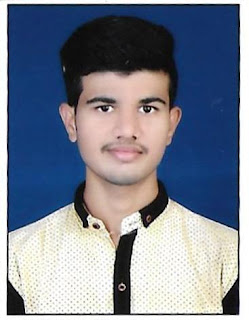Career In Astronomy
Quantum physics govern the way the universe behaves at the scale of atoms, electrons and photons.
Quantum physicists put the rules of this quantum world to the test and devise ways to stretch their boundaries.
What do quantum physicists do at their jobs?
What kind of quantum physicists?
Most physicists using quantum mechanics are applying it, not studying it by itself, in areas such as quantum computing, ion trapping, Bose-Einstein condensate research, superconduction research, etc.
Quantum mechanics probably comes up in more areas of physics than not, but these are some areas where it is the central concern.
Experimental physicists spend time building instruments, running instruments, fixing instruments, analyzing data, and writing papers.
One such instrument is an optics table which you'll find in pretty much any AMO lab.
On an optics table, lasers are sent through a bunch of fancy optical devices and, ultimately, a measurement is taken.
If the experiment is done involves trapped ion qubits, for example, the laser is going to be used to cool ions down so that they can be trapped (low temperature, combined with small size, is what you want in order for quantum mechanical effects to become significant).
The output measured will probably be the state of the qubit after some sort of quantum mechanical manipulation is done to it.
Theoretical quantum physicists won't be doing any instrumentation and will spend more time, well, theorizing (I'll admit that I know more about the day-to-day lives of experimentalists than theorists).
This might include reading papers (note that experimentalists also read papers), writing papers, running simulations, looking at data, building models, testing models, and doing things on Mathematica.
Additionally, physicists are often professors and, thus, often teach classes in addition to research which will add preparing lectures, giving lectures, grading assignments, and holding office hours their list of daily/weekly activities.
Although not exactly day-to-day activities, physicists also attend colloquiums, speak at colloquiums, visit conferences, apply for grants, apply for tenure, meet with university officials and grant committees, advise graduate students, write letters of recommendation, and, once a year, hold graduate open houses.
As a quantum physicist, I can see that the whole field is gonna explode.
Here in the US, there are already a few companies willing to hire quantum physicists (both in theory and experiment).
Here are some examples:
Quantum computing companies based on superconducting Qubits:
• D-Wave
• Rigetti
• Google, IBM
I also know that UK and China have invested HUGE amounts of money in quantum-related stuff, so jobs as a quantum researcher won’t lack in the future.
If for “jobs” you mean what you see yourself doing in the future.
I’ll tell you this:
The first quantum revolution happened several decades ago, our understanding of the microscopic world opened our eyes to a whole new realm.
I call this the first revolution since we started to understand what's up.
Now the second involves what we do with this knowledge.
Quantum is behind lasers, computers, sensors, materials, etc. Now the quantum physics community also thinks about ways to harness such concepts.
That is not to say that there aren’t things we don’t know, and most of the weird and obscure aspects of quantum theory are still being researched.
Certainly, there won’t be that many opportunities in basic research, but I feel confident enough to say that this is true in any field.
Science is awesome and we do it because it's a pleasure, but it's also too romanticized, there is people willing not to worry about future finances and there are others looking for money.
What I think is that as long as a shot gets done, we grow as a society and our understanding of what can be or cannot be done/explored will expand as a consequence.
An acute need for young scientists in the field of Astronomy is present.
The following possibilities are open for a career for a physics/mathematics/engineering graduate with a specialization or a PhD in Astronomy & Astrophysics
Job Opportunities & Career Prospects:
• Research Scientist
Several research institutes and government organizations employ research scientists in various academic grades for research-oriented programmes.
• University Faculty
There will be more openings in the universities, especially in physics departments, for specialists in Astronomy & Astrophysics
• Industry
Experience with sophisticated astronomical instrumentation and the expertise gained in computer programming and handling data can serve as valuable assets for jobs in the industry.
Careers with a physics degree
• Astronomer.
• Clinical scientist, medical physics.
• Lecturer.
• Nanotechnologist.
• Radiation protection practitioner.
• Research scientist.
• Teacher.
• Sound engineer.
Teaching & Research Programmes
Universities that offer Astronomy & Astrophysics specialization at M.Sc., and in some cases, a PhD programme are:
• Punjabi University, Patiala, Punjab.
• Osmania University - Full M.Sc. Course in Astronomy & Astrophysics.
• Aligarh Muslim University (AMU), Allahabad.
• Indian Institute of Science, Bangalore.
• Swami Ramanand Teerth University, Nanded.
• Pandit Ravi Shankar Shukla University, Roorkee.
• Mahatma Gandhi University, Kottayam, Pune.
and so on.
Indian Institute of Astrophysics (IIA)
IIA has a full-time PhD programme for which the students are selected through an entrance exam, followed by an interview.
The exam is conducted in November every year and is advertised around September.
Students are also selected through Joint Entrance Screening Test, conducted annually in the month of February, followed by an interview.
The advertisement appears in all leading newspapers.
Posters are sent to various institutions, universities and colleges all over India.
Highly motivated candidates with an M.Sc. degree in Physics / Maths or M.Tech. in Engineering & exceptional candidates with B.E. /B.Tech. degree and a good background in physics are eligible to apply for admission to the PhD programme.










No comments:
if you have any doubt, let me know